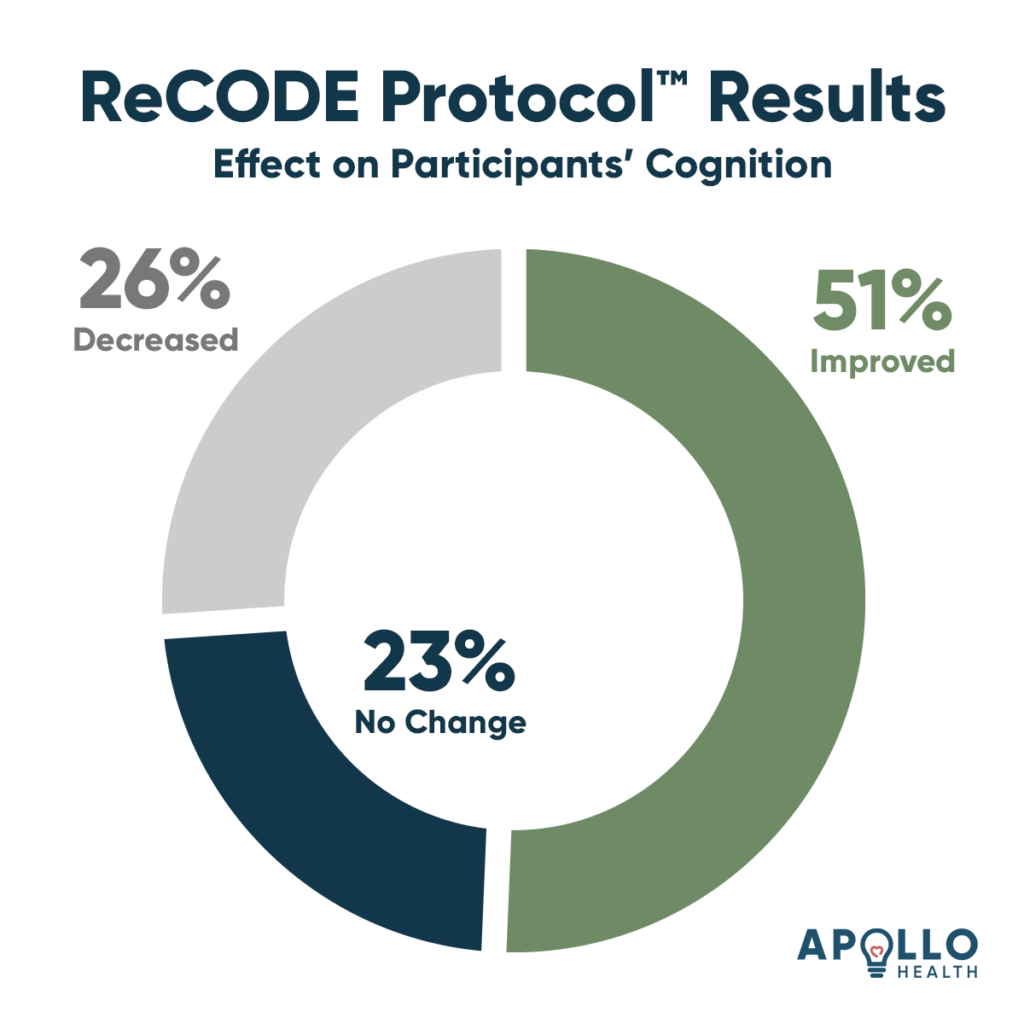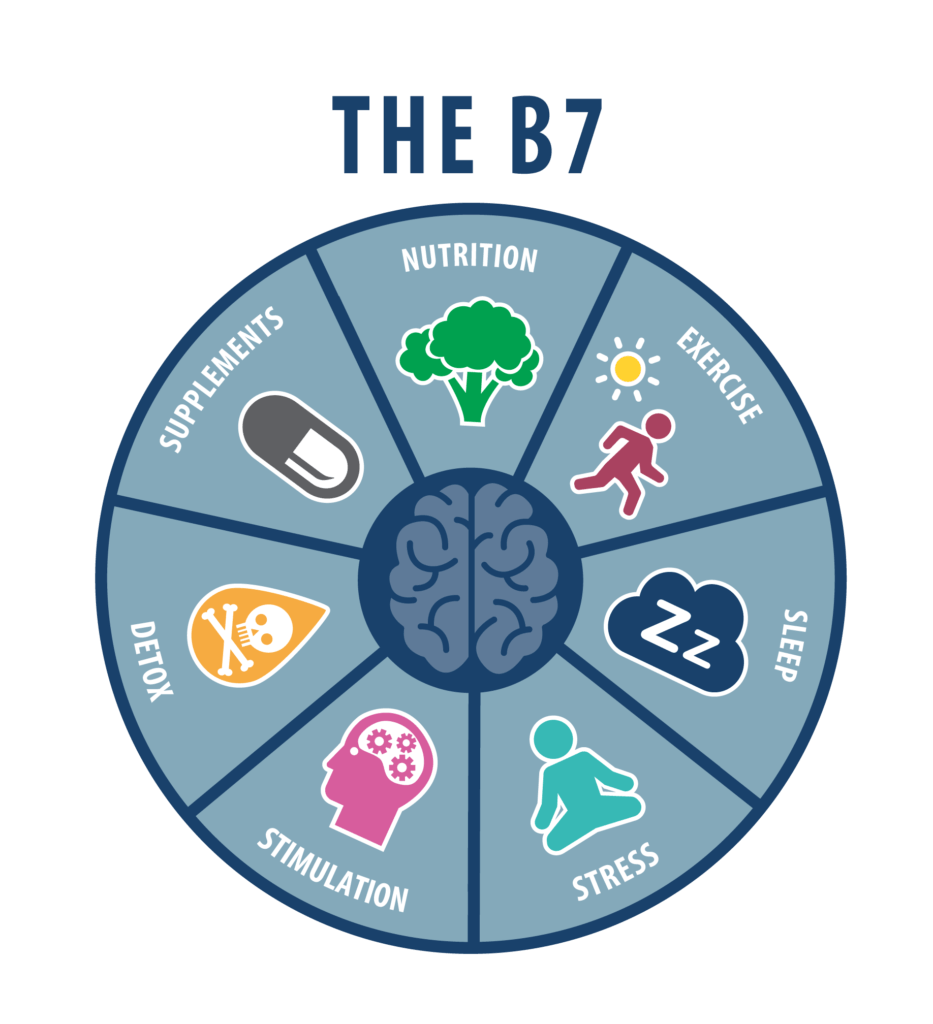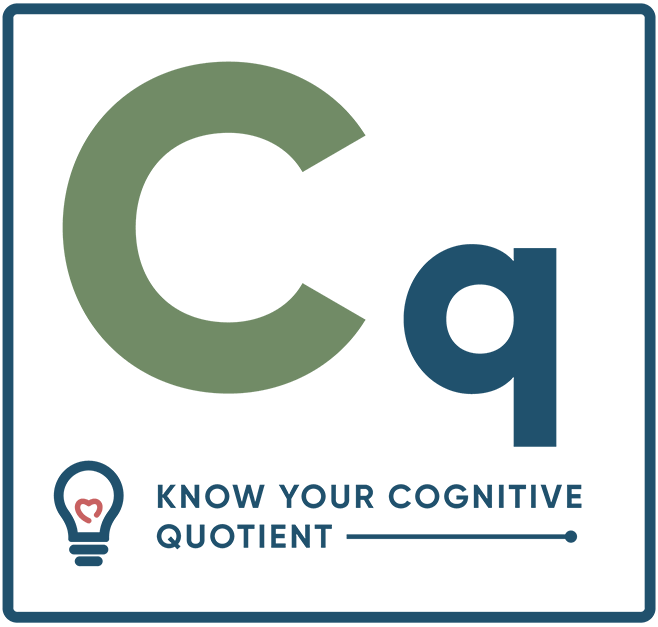Apollo Health is pleased to share our first publication, which demonstrates that a majority of participants experienced an improvement in cognition. An analysis of the data from our ReCODE Protocol™ program entitled “ReCODE: A Personalized, Targeted, Multi-Factorial Therapeutic Program for Reversal of Cognitive Decline” was recently published in a peer-reviewed scientific journal, Biomedicines. This study shows memory scores significantly improved for 51% of the participants, which consisted of individuals with subjective cognitive impairment (SCI), mild cognitive impairment (MCI), and early-stage Alzheimer’s disease (AD).
The Data
The data compiled from 255 participants included blood samples, Montreal Cognitive Assessment (MoCA) test, and subjective assessment. These individuals were enrolled in the ReCODE program. They had the support of clinical practitioners and Apollo Health, with follow-up visits that included education regarding diet, lifestyle choices, medications, supplements, repeat blood sample analysis, and MoCA testing between 2 and 12 months after they began the ReCODE program.

By comparing baseline to the follow-up testing, the team observed that MoCA scores either significantly improved or stabilized in the entire participant pool. These results proved that this multi-factorial, comprehensive, and personalized therapeutic program designed to mitigate AD risk factors and reverse cognitive decline, was more successful than current anti-amyloid therapies. The results of this analysis showed that 74% of the participants’ cognition was stabilized and improved. In addition, their overall wellbeing benefited with improved scores for fasting blood glucose, high-sensitivity C-reactive protein (which measures inflammation in the body that is correlated with AD), HOMA-IR (an indicator of insulin resistance), and levels of vitamin D.
The Science Behind The Analysis
The participants in this analysis all used the ReCODE Protocol (ReCODE is short for reversal of cognitive decline) to address their symptoms. This is a comprehensive program based on the research of Prof. Dale Bredesen, which creates a personalized report to specifically target the contributors of each person’s cognitive decline through a software-based algorithm analysis of labs, medical questionnaires, and cognitive testing.
In addition to addressing the specific drivers of their cognitive decline, including glycotoxicity, a lack of hormonal support, toxins, etc., all participants were encouraged to use individualized specific diet and lifestyle strategies.

This brain-healthy lifestyle is summarized with the Bredesen Seven (B7), which includes the KetoFLEX 12/3 diet, a mildly ketogenic plant-rich diet with a prescribed fasting period; an exercise program comprised of both aerobic and anaerobic exercise; 7–8 h of quality, restorative sleep through the adoption of a sleep hygiene program (and treatment of nocturnal hypoxemia if present); a stress management program emphasizing regular deep breathing breaks with meditation; regular brain training, other learning opportunities, as well as the maintenance of social connectivity; an avoidance of toxins along with instructions to upregulate detoxification; and, finally, personalized supplement recommendations based upon the participant’s lab values.
This current analysis builds on Dr. Bredesen’s small proof of concept clinical trial that also utilized the ReCODE Protocol. In that trial, which had higher adherence rates, the results were even more impressive, with 84% of participants experiencing cognitive improvement. The clinical trial study, together with this new study, offers genuine hope to the millions of people with dementia or mild cognitive impairment, as well as those at risk due to family histories of dementia.


